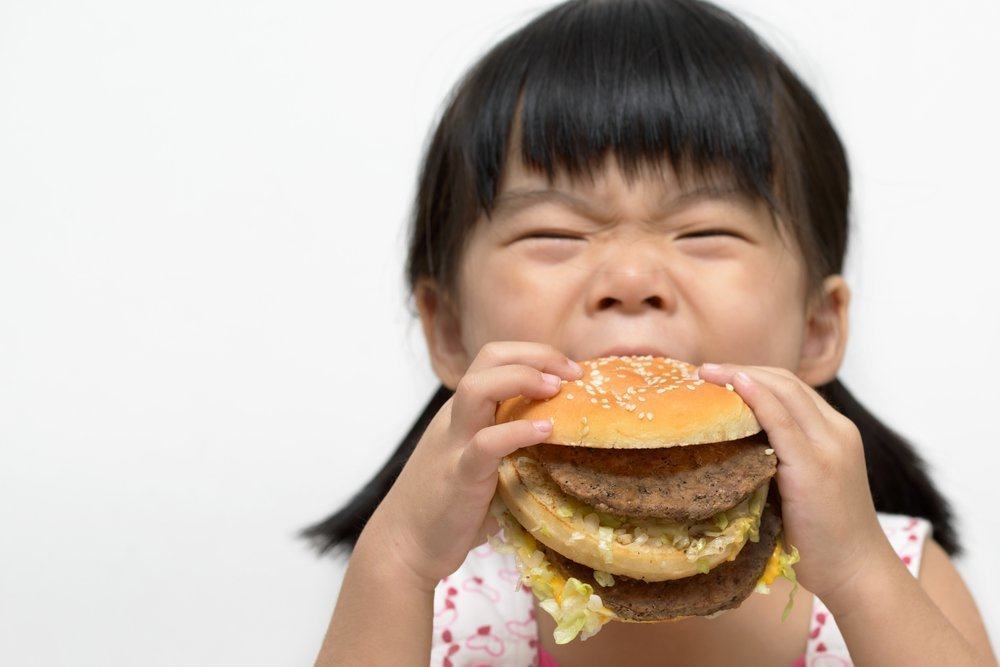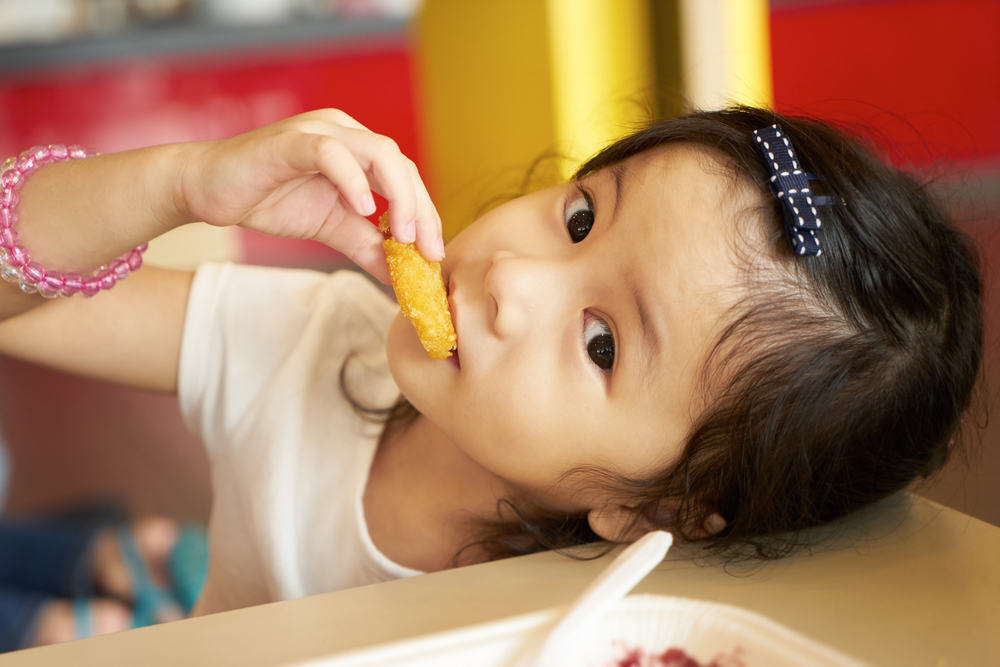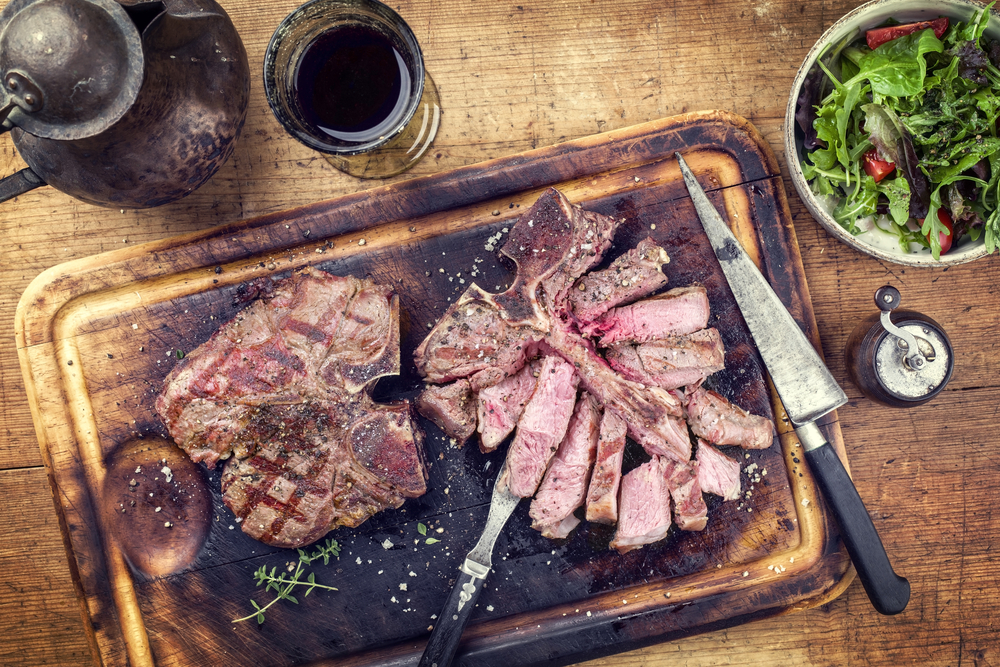Contents:
- Medical Video: Mistake parents make when feeding babies & kids | 8 food feeding mistake done by parents
- 1. Feed forcefully
- 2. Too obedient to children
- 3. Forcing children to eat their food
- 4. Ignore children's choice of food
- 5. Give up too soon
- 6. Give snacks that are not appropriate
- 7. Use food as a bribe or gift
- 8. Don't limit sweet drinks
Medical Video: Mistake parents make when feeding babies & kids | 8 food feeding mistake done by parents
Picky children or toddlers who don't want to eat at all can frustrate parents. You might have read a stack of books or asked other parents about what they did, but feeding children is a different process for everyone. Here are ways to avoid mistakes and keep your child in healthy eating habits.
1. Feed forcefully
If you think that forcing your toddler to eat foods that she doesn't want to eat is a good idea? Think again. You and your child will end up upset and tired. This tactic will not work because your child will not like the food and may even hate meals.
Which must be done: Don't overdo it when your child refuses food. The more relaxed you face it, the fussiness of your child will diminish later. Wait a minute, and try again with a happy and positive attitude.
2. Too obedient to children
Many parents fall into the trap of being an impromptu chef to satisfy children who are picky about food. Worrying that you will let your child starve and inhibit his growth and development encourages parents to cook whatever their wishes are. However, following the child's wishes every time sends a wrong message.
Which must be done: Plan a food menu with at least one meal that you know your child likes. Children also tend to enjoy food more if they help plan or prepare it. For example, if your child likes schotel macaroni, but doesn't like green vegetables, make a macaroni pan with chopped broccoli, and invite your child to help cook.
3. Forcing children to eat their food
Parents usually give a larger portion than what the child needs, or give snacks (especially juice) too close to mealtime.
Which must be done: As a standard portion, each type of food is served as much as 1 tablespoon which is the same amount as your child's age. For example, a 2-year-old child should receive 2 tablespoons of carrots each, 2 tablespoons of rice, and 2 tablespoons of meat. Provide snacks around 1.5 to 2 hours before meal time. Encourage children to eat until they feel full.
4. Ignore children's choice of food
Toddlers have more sense of taste compared to adults (as we get older, we will lose our sense of taste). Something that isn't too spicy or salty in your opinion might be too much for your child. The same applies to bitter foods like spinach or broccoli.
Which must be done: Pay attention when your child tells them they don't like certain foods. When cooking for children, pay attention to the use of herbs that are too heavy.
5. Give up too soon
Don't assume if a child refuses a one-time meal means he won't accept it again. It takes about 20 times to expose a food to a child so that they will accept it. Don't give up too easily or immediately get rid of the food from your child's food.
What needs to be done: Often provide these foods and let children play with these foods. This includes touching food and allowing the child to put food in his mouth and melt it again. Gradually they will receive it.
6. Give snacks that are not appropriate
Snacks must contain nutrients needed for growth and development. Providing cakes and biscuits on a regular basis will make them used to eating foods high in fat and calories.
What should be done: plan a balanced snack, including fruits, vegetables, protein, whole grains, or dairy products.
7. Use food as a bribe or gift
"If the vegetables are spent, you can eat this chocolate." It sounds like an easy way to make children eat vegetables, but this will make children fall into unhealthy eating habits. The use of sweet food as a gift or bribe will make children think that sweet foods are more valuable than vegetables (which even need to be rewarded in advance to be successfully spent).
What needs to be done: Give your child a gift for good behavior (not if he spends his vegetables) and make sure the gift is not food (except occasionally) such as a walk to the park, a bubble bath, or additional playing time.
8. Don't limit sweet drinks
If you really want to give fruit juice to toddlers, it is recommended onlymaximum half a glass of 100% fruit juice a day. More than that will only add to the sugar and result in your child not feeling hungry at mealtime.
What needs to be done: Get used to drinking small amounts of water instead of juice. If you want to consume fruit, just go from the fruit. Or consider thinning the juice with the same amount of water (halfway) to balance it.
READ ALSO:
- Can you give fruit juice to babies?
- What Happens If Children Often Eat Instant Noodles
- 8 Foods to Increase Height in a Growth Period












